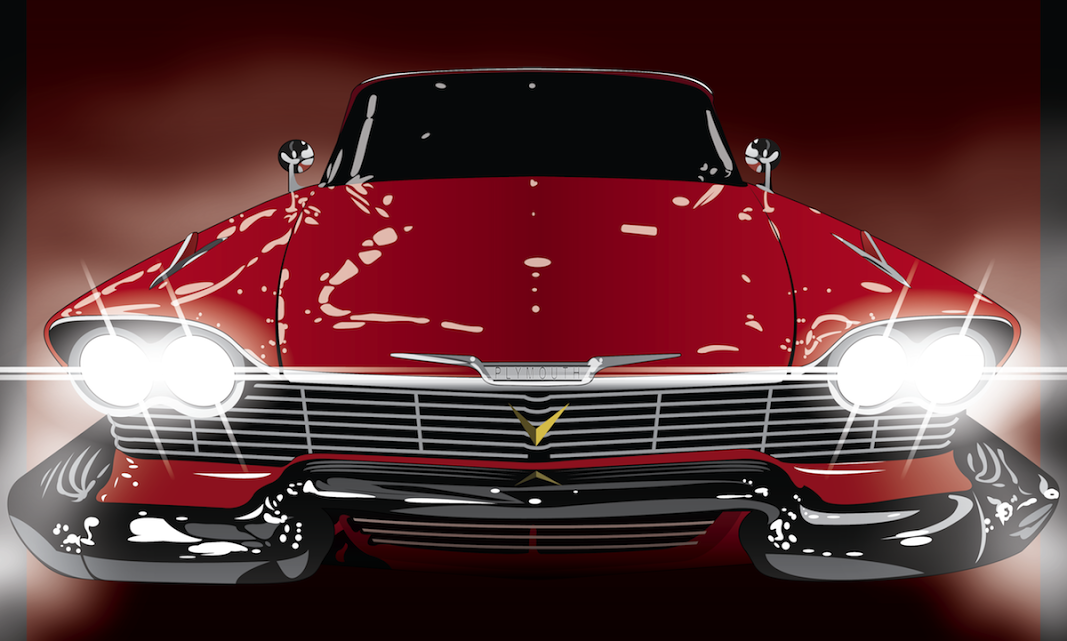Christine
February 24, 2021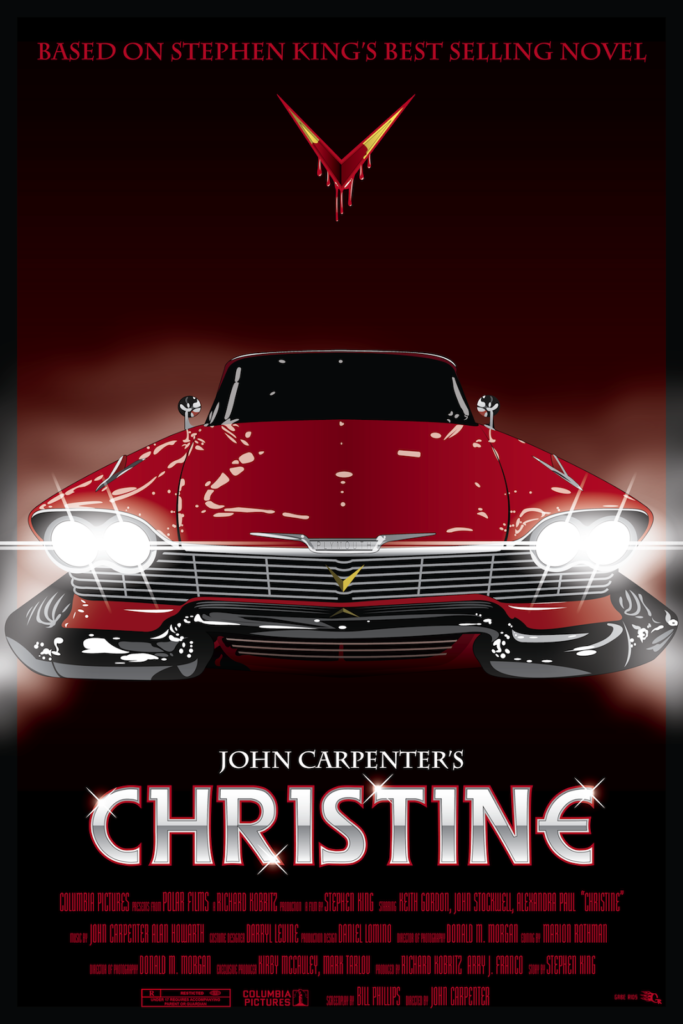
Director: John Carpenter
Writer: Bill Phillips, based on a novel by Stephen King
Main actors: Keith Gordon, John Stockwell, Alexandra Paul
Arnie Cunningham is a nerd, the kind of freakish young man in large glasses who’s bullied by the beefy thugs in high school. Okay, he is a friend of Dennis Guilder, super popular football but even with that, his life is not easy.
Passing in front of a broken house they see a car in even worse condition. But for Arnie, it’s love at first sight. He spends all his money to buy this wreckage of a 1958 Plymouth Fury and starts patching it up. This car is going to change Arnie, making him gain confidence, show off pretty much every authority and even win the favor of a pretty girl who’s reluctant to date much more popular boys.
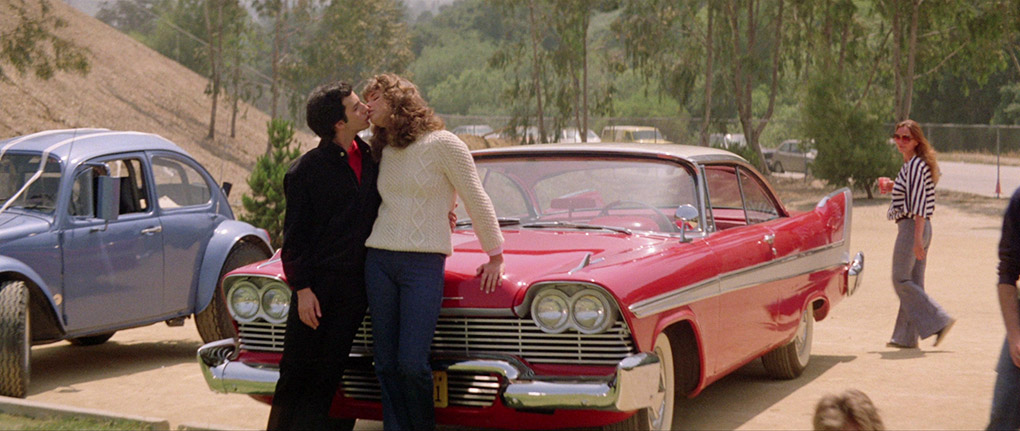
As far as I’m concerned, Christine is one of John Carpenter’s masterpieces. It’s an adaptation of a Stephen King’s novel but since I’ve never read it I won’t consider the adaptation quality. I never was interested in reading the book (although I have read other Kings) because the film itself is perfectly sufficient. Okay, I’ll explain a little later that there are still a few scenes that I would have liked to see but, still, perfect.
It all starts with the intro. Arnie, supposedly the movie’s hero, won’t open the movie. We won’t even start with his world. Nope, it’s Christine, an extraordinary car, from the assembly line who gets the honor. She finds a way to cut off the hand of a dishonest mechanic who tampers with her engine and suffocates another who drops his cigar’s ashes on her luxurious leather seats. No, no one treats Christine that way.
But it will all be classified as unexplained incidents. And that is only by looking more closely at the list of the owners of the car and their so suspicious death that one might wonder about what woudl be good to get this peculiar car.
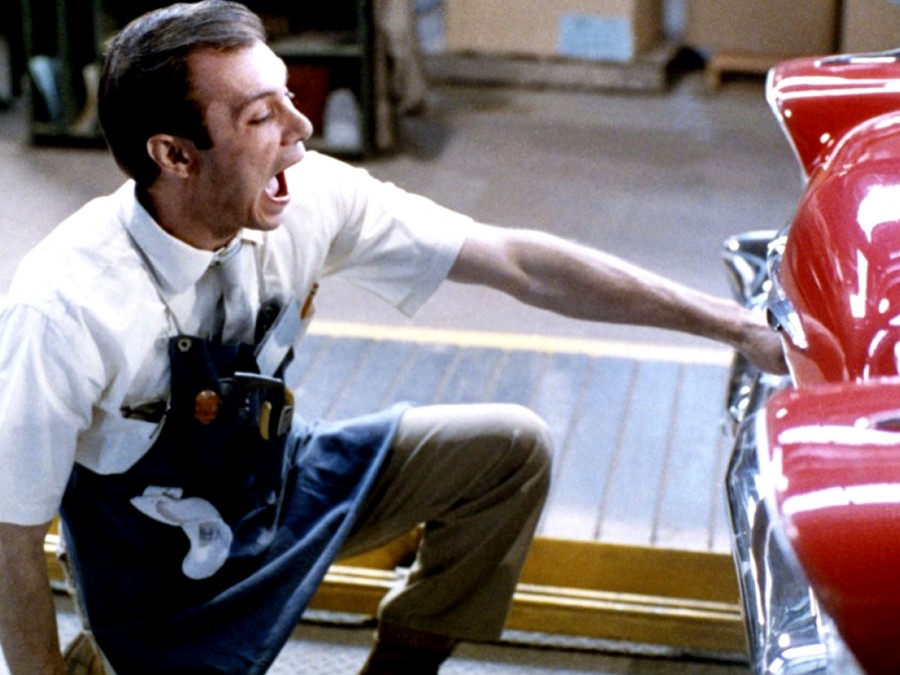
Because Christine is the symbol of Evil, a well-known symbol of Carpenter’s cinema (be it Michael Myers, Sutter Kane or The Thing). And it is also a source of temptation and corruption (ditto except perhaps in the case of Myers who is not really tempting) to which humans will regularly succumb.
Like any temptation, beginnings are very promising and Christine will transform Arnie in a good way: a liberation takes place. He breaks his shy image, gains confidence and even goes so far as to assert his choices in the face of very strict parents (even a castrating mother).
But this release, if it really ever existed, is short-lived. Because if Christine gives him any semblance of freedom, it is clearly to put him under her control. And this love story will take a very concrete turn. Arnie will not be able to choose between Christine and Leigh, the complicity between the car and its driver will be total, the car will eliminate former bullies and the driver will accept his machine even her most supernatural capacities.
As such, the key scene of Christine rebuilding herself is a very intimate scene between the two characters, especially since the car has just been demolished. Carpenter does the job so well that he clearly shows the rampage work as rape. The viewer knows full well that the car is alive and has already accepted this principle, just as Arnie will during the movie. Nothing like having a little sympathy for a character who, if human, would be just plain unacceptable since Christine is a supreme manipulator.
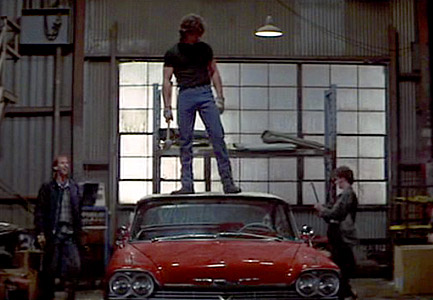
Since this relationship is the main plot, we won’t really see how Arnie manages to seduce Leigh. Does he convince her thanks to his newly acquired bad boy side? Is it the car he drives that appeals to the young girl? We won’t really know although their relationship would be interesting enough to understand Leigh and her reaction concerning Arnie’s obsession. But since Christine is the heroine, Leigh ultimately becomes a support character, a plot-trigger like so many others. She will just try to save Arnie, to warn him about the turn of events.
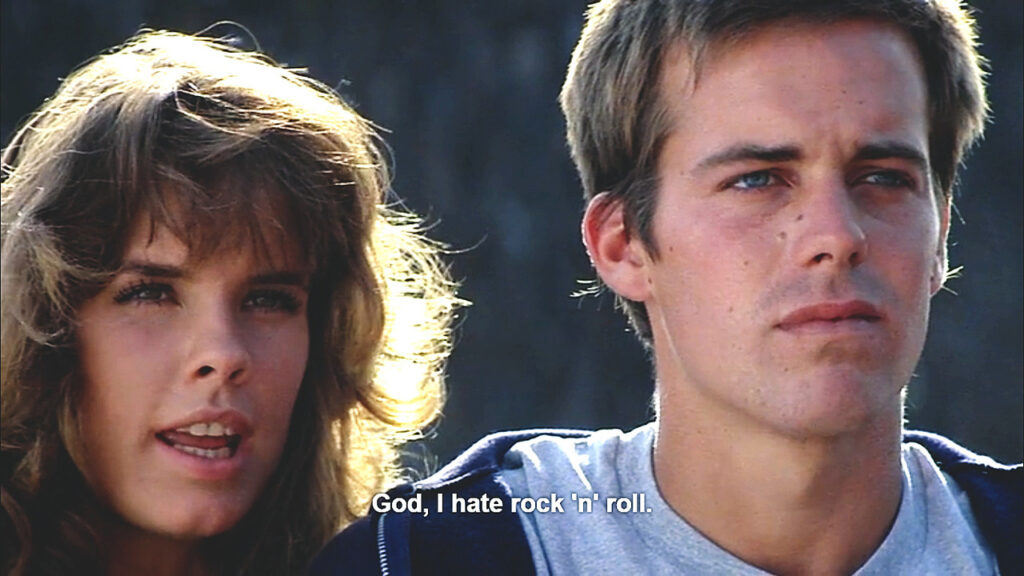
Carpenter’s directing is as usual a pleasure. I find that the gentleman’s talent as an editor is incomparable. The shots always have the right duration to convey the sensations without ever causing boredom. The actors are well directed when you consider the genre. Some scenes could have been more gory (I’m thinking of the mechanic in the first scenes) but Carpenter is playing minor key. The effect will be more powerful if it is off-screen and some of Christine’s victims might have been treated to more graphic treatment. Carpenter therefore chooses elegance over obviousness, and the movie is only getting better. He will also achieve the superb central and pivotal scene of the story where Christine shows all her faculties to Arnie in an totally intimacy that only a couple can know.
The end will live up to the whole movie with its little twist, sign of 80’s horror movies. Although its conclusion, whole, logical and cynical, shows a Carpenter who leaves a classic pattern. You do not go out unscathed from a temptation, from such a consuming obsession: another recurring point in the director’s carreer.
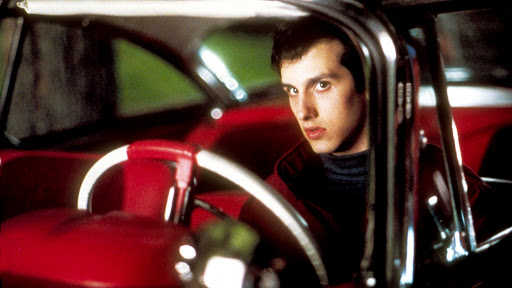
Carpenter obliges, I must say a little word about the music which is an essential element in the film. Here, the director is relatively discreet from a musical point of view, which is uncommon considering his whole carreer. Because Christine will express herself through pieces of 50s rock. This will reinforce the very 50s American image that embodies Christine. Here again, the time in which Christine was built and her functioning transforms her into a femme fatale with a completely forbidden power of seduction. The lyrics add dark humor to scenes that are known to end badly. And that makes the car and the movie even more ‘likeable’, without making her talk (like a KITT or an Audrey for her Seymour).
You got it: I love this director, I love this film and I appreciated being able to watch it again in good conditions (if the opening credits are a little blurry, the image clearly wins in sharpness after).

